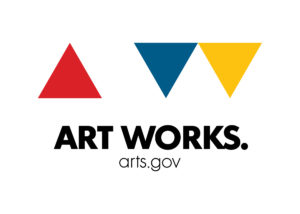By Lucia Fox-Shapiro
WIFV kicked off the week of June 3 with the Craft of Producing Panel for members of the WIFV Narrative Directors, Screenwriters, and Documentary Roundtables. The panel included the moderator Tim Perell, with Kyle David Crosby, Catherine Hand, and Andrea Meditch. Perell is the director of the Johns Hopkins University Film and Media Studies program and has produced more than 25 feature films, including SHORTBUS (2006), WORLD’S GREATEST DAD (2009) and THE REBOUND (2009). He is the president of Process Media, a New York-based production company, which produced features as well as short-form digital and branded content. Crosby runs Pictureshow Productions, and recently was the line producer for the Netflix original film #REALITYHIGH and is an active member of the Producers and Directors Guilds of America. Hand produced the film adaptation of A WRINKLE IN TIME (2018), a goal she’s had since childhood. Meditch is the founder and president of Back Allie Entertainment, and serves as a creative producer, recently releasing THE SENSITIVES and THE CAGE FIGHTER. She’s won an Emmy for DANGEROUS ACTS, and executive produced the Oscar-winning MAN ON WIRE. Before starting her own company, she held executive positions at Discovery and National Geographic. The discussion covered a breadth of topics related to the roles of a producer and the relationship with the director, but they emphasized a few key points.
What attracts you to a film?
Each producer reflected on what attracts them to a film, and what persuades them to take on what will be a lengthy and time-consuming project. Meditch is drawn to the story, and what the narrative has to say. What is at the heart of the film, and how is it going to touch the viewers? Crosby added on to this, by focusing on what is compelling about the project, and if it is a challenge he would enjoy taking on. Hand looks for stories that have something for everyone, and strives to “illuminate the human spirit”. Perell looks more at the financial side, and how best to serve the market. He wants to be inspired by the story, but also wants to ensure that the film will bring in the necessary financial returns. They all emphasized the importance of who is part of the project. Sometimes you’re attracted to a film because of the director or writer, and it’s the people attached to the project who inspire you to come aboard.
Be careful who you work with
The film industry is a team sport, and the producer especially will work with people in all areas of the project. The producers advised the audience to work with a variety of people, not necessarily union members, or those you’ve worked with before. It is imperative to be kind to everyone and maintain positive business relationships because you never know who will become successful, or lead you onto the next project. It is also important to trust who you go into work with since you are reliant on the whole team to create a successful film, especially those with financial control.
Know how to appeal to audiences
A producer has a large role in securing the finances for the film, which directly impacts how the film is going to be shot. Their advice for this was to appeal to multiple demographics, in what they called a “4-quadrant movie”, one that can appeal to an 8-year-old and an 80-year-old. Hand used this expression to describe A WRINKLE IN TIME. Investors want to know who the film is going to reach and ensure that the film will be successful enough to justify spending the time and money to create the film.
Thoughts on the Hollywood gender gap
It is no secret that the film industry is a male-dominated one. Sundance directors and award winners are about 50/50 men and women, but the films picked up by major companies are mostly directed by men. There are probably just as many women making films as there are men, but the money is not being given to women filmmakers at the rate that is given to men. Meditch, who has spent years working in non-fiction film, said that there are more women on the producing side of non-fiction films than there are in fiction because there are more blurred lines between the director and producer. All of the producers suggested to have a separate producer and director, so the director has more freedom to work creatively.
WIFV is co-hosting a Documentary Roundtable with Docs In Progress, Monday, July 8, 2019 at 6:30 PM.


















